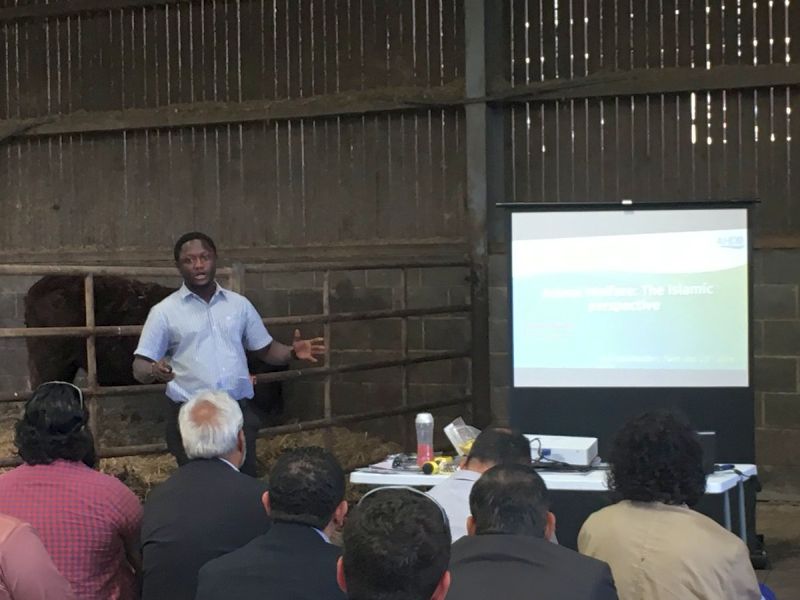
The farming industry and the halal sector are being urged to forge better relationships as the Muslim population, and demand for quality lamb, increases.
This was the key message from an AHDB halal event held in West Yorkshire, which helped farmers and the Muslim community establish a common understanding of each other’s requirements.
More than 40 delegates attended, including livestock farmers, representatives from the Muslim community and agricultural bodies.
John Royle, Chief Livestock Advisor from the NFU started off the day by giving an overview of UK livestock farming with a focus on the lambing season.
There is already significant demand for domestic lamb in both domestic and overseas halal markets as around 40 percent of Muslims currently eat lamb.
Awal Fuseini, AHDB Halal Sector Manager, spoke about the importance of animal welfare in the Muslim community, and the necessity to be open and transparent about halal slaughter.
He said: “These events have been really useful in facilitating communication between the halal sector and farmers. Only by working together will we ensure that both industries’ needs are met.”
Market potential
Delegates had the opportunity to see the different breeds of sheep kept at Beeston Hall Farm and heard from farmer Rachel Hallos about the importance of understanding the needs of the market in local areas.
Ms Hallos said: “We, as farmers need to have an appreciation of important dates in the Muslim calendar so then we can produce a product depending what is required.
“Lamb produced in the UK is of the highest quality and it is our job as food producers to highlight this to all potential markets.”
Rafik Adam, Chief Executive of enterprise4all, which aims to strengthen communities through enterprise, education and employment, said it is essential communities learn from one anther.
“Events like this are the starting point of bringing the halal sector and agriculture closer together. Rural communities are currently underserved and it is important that Muslim consumers understand more about farming and how the food they eat is produced,” Mr Adam said.
In 2015, the global halal spend was $1.2 billion, and 16.6 percent of the total food expenditure. By 2021 this figure is expected to rise to $1.9 billion, representing a huge market potential for UK farmers.
AHDB’s Inspiring Success Strategy sets out an objective of driving a greater understanding and nurturing the development of the halal marketplace.
